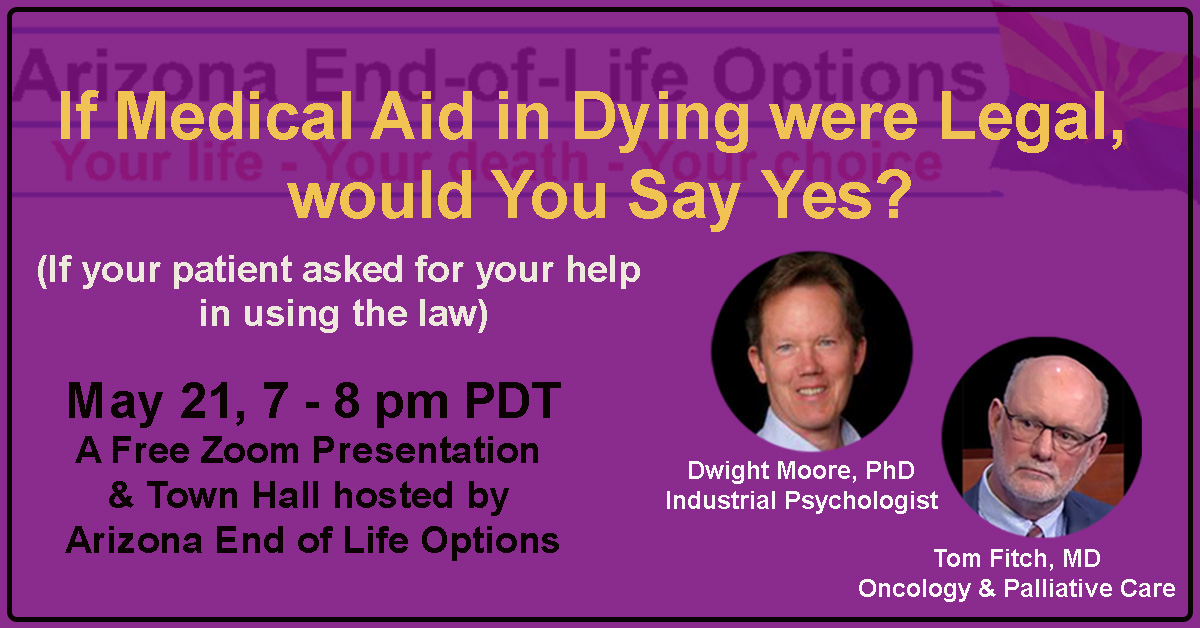
Are
you a working or retired Physician, Nurse Practicioner, Physician's
Assistant, RN, Social Worker, Psychiatrist or Psychologist?
If so, you are invited to attend this exclusive event held for Arizona Healthcare Professionals only.
If Medical Aid in Dying were Legal,
Medical Aid in
Dying (MAID) is not yet law in Arizona but it very well may be in
another few years. We are beginning now to create an infrastructure of
attending and consulting physicians, compounding pharmacies, behavioral
health professionals, and nurses and social workers who are ready to
participate when the law is passed and well versed in the facts of how
the law works.
If MAID were Legal, would You Say Yes? focuses on important questions, we as healthcare professionals should all be prepared to answer:
1) If you were faced with a six-month terminal
illness, relentless pain, and/or an unacceptable quality of life, and
MAID was legal, would you consider using the law?
2) If one of your friends or family members were
eligible for the law, would you support their decision to use it?
3) If one of your patients asked you to assist them in utilizing the law, would you say yes?
Purpose
To introduce healthcare professionals to medical aid in dying, encourage
them to ask questions about the medical and moral implications of
supporting MAID, and potentially enlist their support for the efforts of
Arizona End of Life Options.
Program
Using a ZOOM presentation, our doctors will give a 15-minute definition
of MAID, the requirements for eligibility, and the safeguards built into
the law. Then the floor will be open to questions and comments, in a
town hall format. In additions to the questions above, other topics
might include:
• What are my ethical concerns for using MAID?
• How will my colleagues react to my support of this law for patients?
• What alternatives do we have in Arizona until the law is passed?
• How does my medical training influence “Should I Say Yes?”
• When the law passes, what does implementation look like?
Presenters
Tom Fitch, MD, is a retired oncologist/hematologist who spent the latter
part of his career as a palliative care physician at Phoenix’s Mayo
Clinic. He now volunteers for Arizona End of Life Options and leads
their Docs with Dignity committee.
Dwight Moore, PhD, a retired industrial psychologist, has helped over 50
families navigate the medical aid in dying law in Washington State and
is currently the chair of Arizona End of Life Options.
Click here to register. Your zoom link will be emailed to you:
Would You Say Yes? Webinar on May 21st
|
|